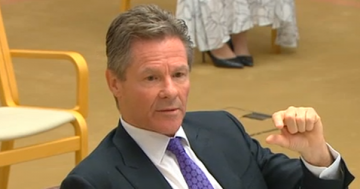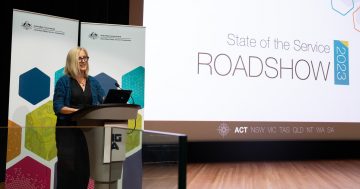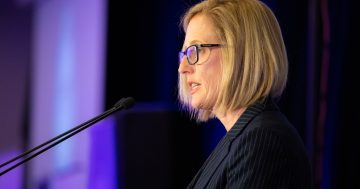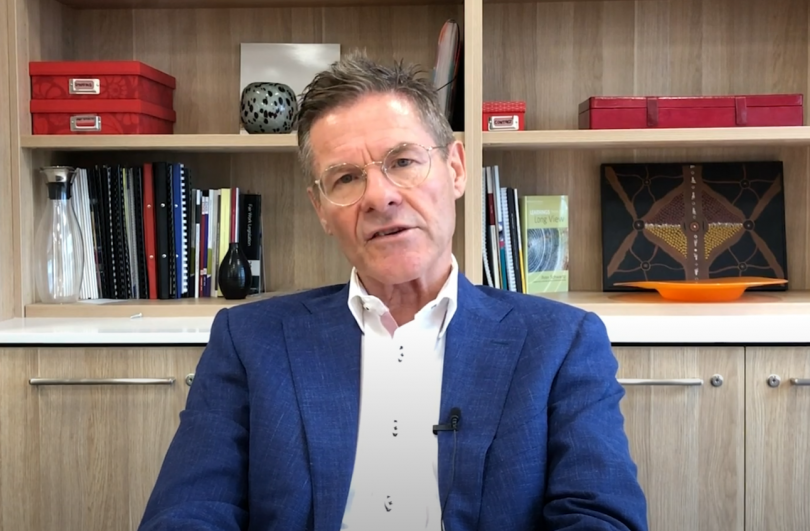
APS Commissioner Peter Woolcott: “Whatever the (election) outcome the expectations on us from government and the Australian people will be enormous.” Photo: File.
The past year has been a turning point for the Australian Public Service and in 2022 any idea of a return to business as normal is out of the question.
Not only is the pandemic far from over with the emergence of the Omicron variant, but the acceleration towards a One APS that it brought means the current reform process stemming from the Thodey Review will become more deeply embedded.
Adding to this state of flux is the looming federal election, where two starkly different visions of the public service will be on offer.
The Coalition has pursued a needs-based approach using private consultancies and labour hire, while maintaining a cap of permanent staff, earning the ire of critics who accuse it of hollowing out capability, pandering to business and undermining pay and conditions.
Labor, led by its public service spokesperson ACT Senator Katy Gallagher, has waged a relentless campaign against the Morrison Government’s approach, including accusations that it has tried to politicise the APS.
It has used a Senate committee investigation to recommend big changes to the way the APS currently operates, including removing the staffing cap and reducing the reliance on consultancies and labour hire by adopting a more stringent framework for their use.
It also is more likely to adopt the Thodey recommendation that the Coalition hasn’t taken on board – for more uniform pay and conditions across the service.
Public service leaders play down the implications of a change of government, saying the APS will serve as always whichever party is voted into power but Labor’s foreshadowed approach will go to the heart of how agencies manage their workforces.
Whether Labor goes as far as it says it will if it makes it into government and faces the realities of administration remains to be seen.
Public Service Commissioner Peter Woolcott raised the election in his address to the annual IPAA event, the importance of an impartial APS and the extent of the challenges ahead.
“The goal of the APS is a simple one – to ensure the smoothest possible transition of power between one elected government and another. It is something very remarkable about Australian democracy,” he said.
“Whatever the outcome, the expectations on us from government and the Australian people will be enormous. And I have no doubt that you will all keep on delivering.”
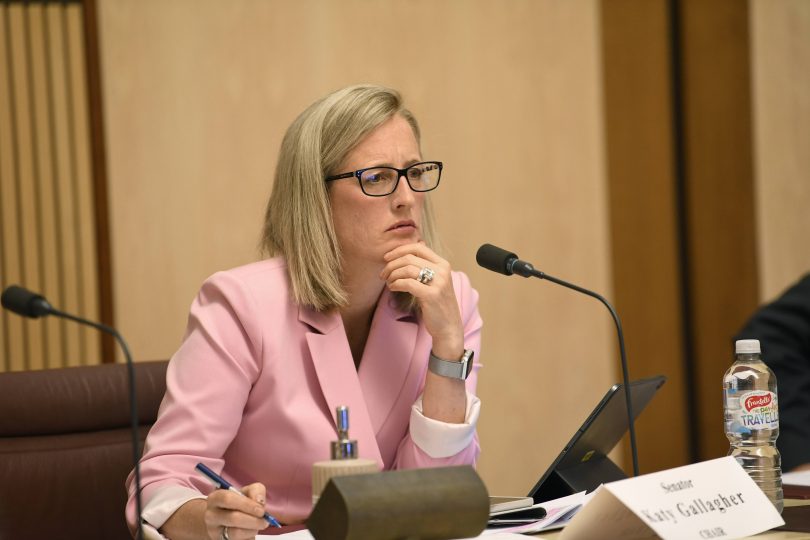
ACT Senator Katy Gallagher has been relentless during Senate Estimates. Photo: Auspic.
Another big point of difference will be the kind of anti-corruption body that is established.
The Government has failed to pass legislation for an integrity commission and the Prime Minister has gone to great lengths to disparage the NSW ICAC model, while Labor is promising a body that holds public hearings and has real teeth.
Whatever the election result, it seems there will be some sort of integrity body established and that will have implications for the APS.
The election will also present another challenge to public servants handling the allocation of grants, with a further tranche being made available in time for the poll.
Some say the the sports and car park grants scandals from the previous election have tainted the APS, and public servants should heed Auditor-General Grant Hehir’s warning that he will be applying an ethics lens to future audits.
His reminder to public servants about their ethical obligations sprang from the grants scandals but could be applied across a range of work.
The road to net zero emissions by 2050 will also demand much of the APS’s time, and the election outcome will also define how we get there.
A Labor win will ratchet up the intensity with its stronger 2030 target.
Generally, the APS will go into 2022 much changed. It will be a more collaborative and agile organisation, with the surge capacity now a permanent fixture, and public servants can expect more cross-agency cooperation and rapid deployment to areas of need.
While politicians might talk about getting back to the office, flexibility, including working from home, will remain and be refined to suit the needs of agencies.
Commonwealth offices are refitting for the hybrid model and while staff want flexibility there will be points of tension over unpopular hot-seating arrangements as agencies readjust their workplace capacity levels.
The generally ad hoc arrangements of the past year will need to be formalised, including conditions in enterprise agreements, as the APS aims to remain a competitive employer at a time of huge demand for skills
It is no coincidence that flexibility features strongly in the the major review of parental leave underway.
The moving of services online will accelerate amid increasing digitisation and imperatives for greater cyber security.
The need for skilled staff to support this is already affecting APS recruitment, with an increase in remote hiring and the targeting of digital native school leavers.
The continuing roll-out of government programs and infrastructure projects to support the economic recovery, as well as the lingering COVID-19 crisis, signal boom times for the public sector.
They will also continue to be, as the Chinese curse warns, interesting times.














